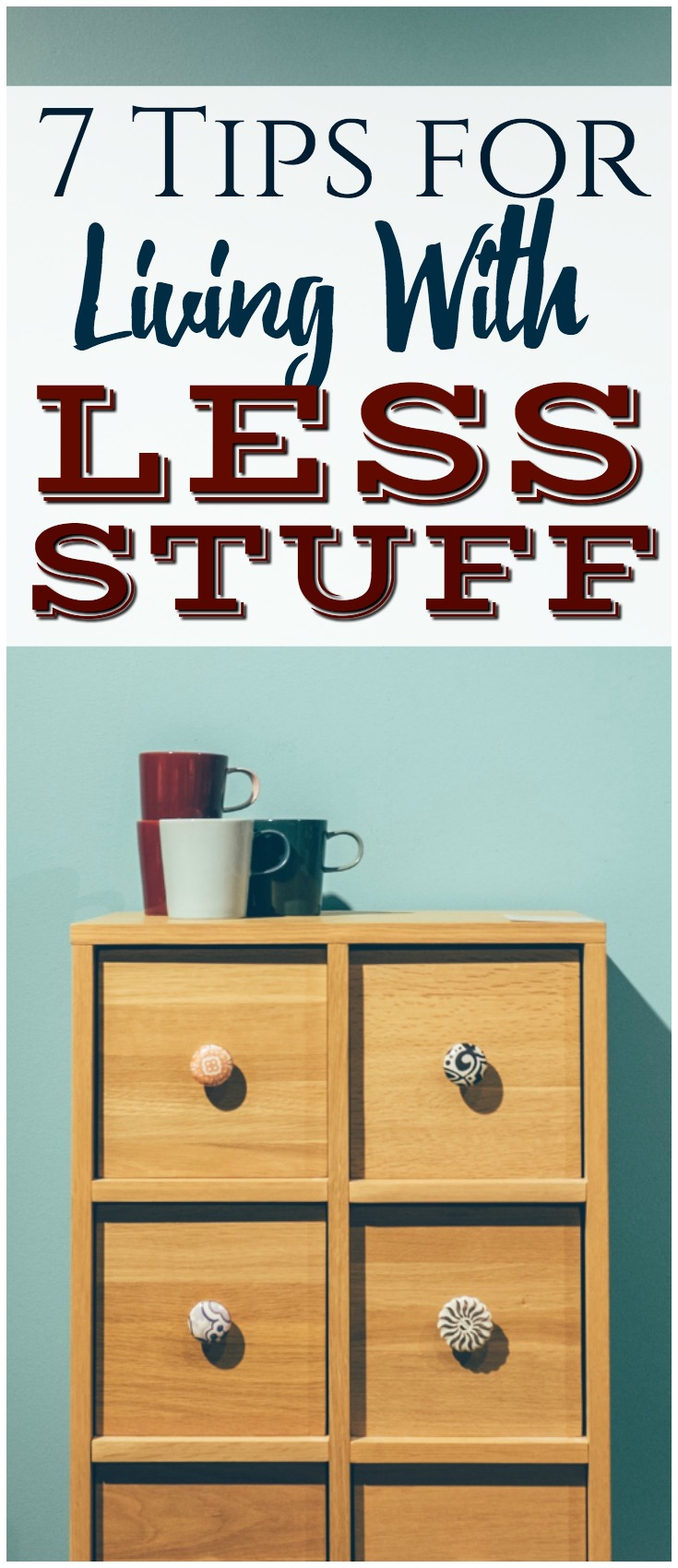
As much as I want to believe that we are all trying to simplify our lives these days, it seems as though we are becoming overrun by stuff.
We buy things because we think we need them, we buy things because they are on sale, and we buy things because it feels good. The result is living with a great deal of stuff we don’t need and slowly starting to feel overrun by clutter. I know many of us fall into that trap – some of us more than others. I find myself the same way — then I end up doing a binge-purge session every few weeks and asking myself how we ended up with so much stuff in the first place.
Don’t even get me started on our toy box – I purge that box every few weeks and somehow, my kids seem to drag twice as many toys back in. Toys we haven’t seen, toys we haven’t purchased – and in most cases, toys they grab from Grandma’s playroom.
I have a huge laundry basket that I keep on my freezer and each day as I go about my duties at home, I throw random things in there – things I come across that I may not need. Clothes that don’t fit. Kitchen bowls and dishes that we don’t use. It’s amazing how much ends up in that basket every Saturday — then off it goes, in the back of the truck, and gets left at Goodwill. I turn around, and put the basket back in the same place and start over that next day (Sunday) doing the same thing.
The ironic thing is… I don’t bring in much stuff at all — and I despise shopping. I have a husband who loves to go shop, meanwhile, I don’t like leaving the house. So this stuff that is going out is stuff that’s usually inherited (hand-me-downs) or stuff that we have moved several times through the years that just has no use.
The good news is, this doesn’t have to be the case. There are ways to live with less stuff, you just have to keep a few simple tips in mind. Look below at 7 tips for living with less stuff, so you can feel freedom instead of claustrophobia from clutter.
#1 – Keep an ongoing donation box
Many times we find things we don’t need and just leave them to sit because we don’t know what to do with them. Instead, keep an ongoing donation box. This can be a plastic tote or box kept in closet or mud room where any donation items can go. Once the box is filled, take it to a donation center.
#2 – Slowly work your way through each room of the house for donations
Work your way through each room of your house and carefully evaluate each item in it. Keep items you love and use, and donate items that no longer serve a purpose or bring you happiness. This way, you don’t feel overwhelmed and conquer one space at a time. If you don’t do this daily or weekly, just keep the donation box in the mudroom and work your way through each room as you live your day/week/month.
Eventually, it’ll get done, it just won’t be as intentional.
#3 -. Keep only items you use on a regular basis
If you haven’t touched it in 90 days, donate it. It is unlikely that you will use the items if you haven’t had a use for them in three months. This will help you clear away clutter while at the same time giving the items to someone who can use them.
#4 – Remember that stuff doesn’t define you
Things should never define you. They are not who you are or what you are about. As long as you keep this in mind, you can let things go a little bit easier and focus on the things that matter.
#5 – Set yourself on a strict budget
Letting go of clutter doesn’t just help free up space and time, it frees up cash. Set yourself on a strict budget where you evaluate purchases carefully. This way you can avoid buying things that just collect dust and keep some cash in your pocket at the same time. Remove your card from your Amazon account, and be intentional about avoiding that trip to Target. Forego the gifts for birthdays and instead opt for other celebratory items – experiences, trips, etc.
#6 – Enjoy experiences over things
Find joy through experiences over things. This means enjoy movies, museums, dances, concerts, and nature instead of entertaining yourself through stuff. You are sure to make memories and have fun without having more things to dust!
Kids will be just as grateful for having the opportunity to spend time with you and in the process, they’ll get to see and do things they may not have had the chance to do before. Tour the Hoover Dam, or save up your money and experience LEGOLAND. Stay in your local state (for us that’s Arizona) and find things to do that are unique, different and fun.
#7 – Make note of how living with less makes you feel
Chances are it brings feelings of peace and organization! Focus on these feelings the next time you are tempted to hold onto items you don’t need or buy more things. Remember how good it feels to live with less. Eventually, you will not be as compelled to head to Target and wander around the aisles – you might just find it easier to stay home and catch a movie with the kids and spouse.
Sometimes we don’t realize how much of an impact our purchases make in our life – we make decisions that feel best in the moment. Before we know it, we find ourselves purging stuff to get rid of
We constantly feel the urge to be accepted, to be important — as a result, we find ourselves driving a better car, wanting to find a bigger and better house, and perhaps even more stylish home furnishings. We long to be accepted amongst friends and strangers so we splurge on a better, more stylish wardrobe. And the purchases keep flowing — while deep down we are in great hopes that our purchases will elevate our life and make people see us in a different light.
People will recognize us more. Perhaps give us better treatment. Make us feel like we can get all of the things we want. Little did we know that our life was being affected by a belief system that we may not even want. This insecurity fuels our consumerism – and that insecurity leads us to doubt ourselves and our self-worth and make it up with material stuff that we buy.
Except for that material stuff is only a temporary form of happiness.
Instead of looking for stuff to elevate your life, practice mindfulness. Be aware of what it means to live a good life. Redefine your success to be something other than money and power. As you work towards practicing mindfulness, slowly scale back from making those impulse purchases that lead you an overabundance of stuff.
Place a greater priority on living a fulfilling life without the consumption of stuff; a life that focuses on happiness – after all, success doesn’t bring happiness. Happiness brings success.




Leave a Reply
You must be logged in to post a comment.